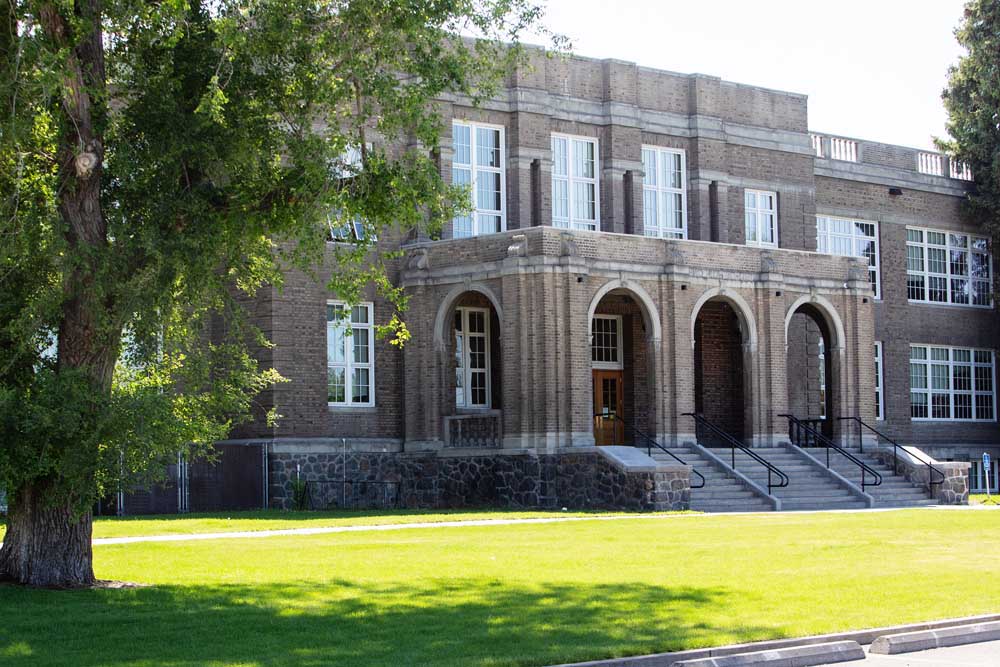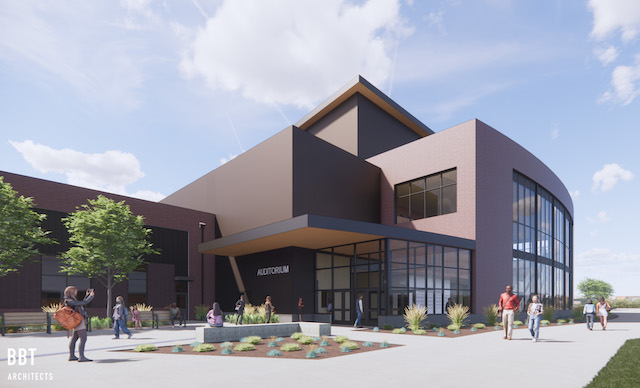David Lindley returns to Bend
Published 11:53 am Tuesday, June 6, 2017

- Multi-instrumentalist David Lindley, who is known for his work with Jackson Browne, Warren Zevon, Bob Dylan and more, will perform solo at 2nd Street Theater on Thursday. (Submitted photo)
As a teenager, David Lindley wanted to play classical Indian music.
He was introduced to artists such as Ravi Shankar through his father’s extensive record collection, which included a vast array of what he called “Hindu music.” Lindley was immediately fascinated by the style, but he soon realized he wouldn’t be able to play it.
“My dad said, ‘You should check this out; this stuff is really, really wonderful.’ And it was in movies, and you could hear it every once in a while,” Lindley said recently from San Rafael, California, during a day off from his current tour. “But when you actually sat down to listen to it and you realized how complex it was, and that there was forms that you would have to stick to, and if not, if you’re gonna improvise, the world of improvisation was just — it was so vast. I’m like, oh well, I can’t go back to when I was 5, so I’ll play bluegrass. I was like that. Either or, bluegrass or classical Indian music.”
Lindley’s first instrument was banjo. He would go on to win the Topanga Banjo-Fiddle Contest in his native southern California five years in a row, kicking off a musical career that spans six decades and countless more stringed instruments — Hawaiian slack-key guitar, Middle Eastern oud, Irish bouzouki, Turkish saz and chumbus. His early work with ’60s group Kaleidescope — and later on as leader of the reggae-tinged El Rayo-X — helped set the template for the world music genre to follow, and he has performed and recorded with Jackson Browne, Warren Zevon, David Crosby, Graham Nash, James Taylor, Linda Ronstadt, Bruce Springsteen and Bob Dylan.
Even as he made his name in rock ’n’ roll and country, Lindley continued to search out new cultures, new styles and new instruments. These days, his work has brought him full circle. He tours with just a road manager/sound engineer and, as he did in his early career, performs solo, inspired by artists he used to watch play at The Ash Grove in Los Angeles, including Muddy Waters, Lightning Hopkins and Mississippi John Hurt. He’ll be at 2nd Street Theater tonight.
“Every once in a while, I would hear from people who had studied (different genres of world music), and they’d say, ‘Oh, no, play rock ’n’ roll,’” Lindley said. “If you want to eat, do you want to be able to — do you want to have a car? That’s what you have to do, because when you’re a student of classical Indian music or whatever it is, it can be kind of difficult. I had several people tell me that: ‘Play this stuff, and then later on, you’ll be able to branch out into these other things. In the meantime, you will develop a way to hear, and you’ll develop your hands so that they work the way you want them to.’ And it was kind of a plan. So I did that, and now, I’m doing the stuff that I used to think about when I was 14 years old.”
Earlier in his career, Lindley would often tour with up to eight instruments. He’s pared that down to just six: two electric ouds, three Hawaiian guitars and a bouzouki, all in different tunings.
With that setup, he’s able to tackle just about everything he’d want to play, including cover songs such as Zevon’s “Indifference of Heaven,” stripped-down El Rayo-X numbers and (on the bouzouki) some traditional banjo tunes.
“‘Twist and Shout,’ doing it as a solo tune is kind of dumb; it doesn’t quite work,” Lindley said. “But there’s other things. ‘Beneath the Vast Indifference of Heaven,’ a Warren Zevon tune, you can do by yourself. You can play solos; you can do all that stuff. It’s a certain kind of tune. And then, some of the El Rayo-X stuff that I’ve done with a band, it can be done with one instrument and one voice, but you have to be kind of creative for it. ‘Quarter of a Man’ actually works with a big, baritone Hawaiian guitar and things like that. Playing all these Middle Eastern instruments, a lot of times, I try to figure a tune that can be played with a certain instrument, so it goes in reverse.”
Lindley, 73, has slowed in the recording department: His most- recent albums include 2013’s “Encounters at the End of the World,” a collaboration with fellow Californian Henry Kaiser; and 2010’s “Love is Strange: En Vivo con Tino,” a live document of his 2006 Spanish tour with Browne (with whom he famously worked from 1971 to 1981). Although well known for his session work, Lindley said he stopped doing that “a long time ago.” Like many musicians, Lindley has struggled with the changes in the recording industry brought on by the internet.
“Every once in a while, I’ll do (session) stuff, but it’s nowhere near where it used to be,” Lindley said. “I kind of saw it coming anyway, and with home recording and stuff, you can do an entire CD that will have a lifetime of seven months before everyone downloads it and trades it and shares it. The word ‘share’ has a hundred new meanings. So people realize that and they say, ‘Why should I go into this? Why don’t I go into computer programming, or computer graphics?’ Which is wonderful, too, but it’s not the same as writing songs and playing and practicing eight hours a day for 10 years.”
That hasn’t stopped Lindley from recording his own material. He said he’s in the middle of a new album (“I’ll always do that”), with seven songs ranging from originals to re-imagined versions of old Appalachian tunes already completed. The record will feature guest performances from friends (he wouldn’t reveal who just yet) and his daughter, Rosanne Lindley.
Given the state of the recording industry and Lindley’s recent, stripped-down tours, it would seem there’s some truth to the notion “all the money is on the road.” But Lindley laughed at that idea.
“I had a guy tell me that; he told me he made a copy of this particular CD, and I said, ‘Oh, well, thanks a lot.’ He says, ‘Well, you make enough money on the road,’” Lindley said. “Oh really? Oh, is that right? Yeah? You want to go on the road for a while?
“But it’s one of those things: Everything changes around from one thing to another, and then you get all the corporate rock and the corporate country music and all the corporate everything,” he continued. “And then, you get an underground where stuff is really done, and you get the punk movement; you got hip-hop. And you have all these different forms that came out of the underground, an alternative to corporate music, and there will always be that, the backlash. And it’ll be small, and people will be really dedicated. And they do it for the right reasons because they want to get good; they want to play well. It’s just different now.”
I had several people tell me that: ‘Play this stuff, and then later on, you’ll be able to branch out into these other things. In the meantime, you will develop a way to hear, and you’ll develop your hands so that they work the way you want them to.’ And it was kind of a plan. So I did that, and now, I’m doing the stuff that I used to think about when I was 14 years old.”— Musician David Lindley
What: David Lindley
When: 7:30 p.m. Thursday
Where: 2nd Street Theater, 220 NE Lafayette Ave., Bend
Cost: $30
Contact: 2ndstreettheater.com or 541-312-9626






